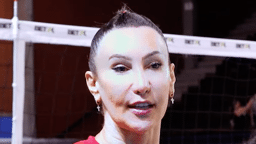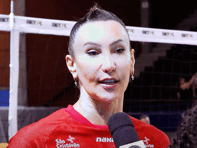(This story was published in 2004).
Professional athletes from John Rocker in 2000 to John Smoltz in 2004 have made it clear that openly gay players in Major League Baseball would receive a harsh reception from some prospective teammates. The resistance of the WNBA’s New York Liberty, which many assume has a large lesbian fan base, to formally recognize their gay fans received plenty of attention and a kiss-in at one of the games.
Despite all of this, a number of baseball teams have been welcoming efforts by their gay fans in the last couple years to create gay-themed events at their ballparks. Just as it did with Jackie Robinson over 50 years ago, Major League Baseball, it seems, is leading the way in reaching out to a minority group – this time, baseball fans who happen to be gay.
In the last three years, no less than a dozen baseball teams have hosted or participated in “gay days” at one of their home games. This year will mark the most gay-themed outings at baseball stadiums in any given season. The Toronto Blue Jays hosted Pride Community Day on June 24. The Philadelphia Phillies (Aug. 9), Oakland A’s (Aug. 14), Chicago Cubs (Aug. 15) and Boston Red Sox (Aug. 16) will all have their “gay day” within a week of one another. There will also be an event for gay fans during a Mets game at Shea Stadium Sept. 13.
Maybe the most progressive event of the year will be the San Francisco Giants’ LGBT Singles Night OUT on Sept. 1. The event is an offshoot of the Giants’ regular singles night that targets straight bachelors and bachelorettes. The LGBT evening’s festivities will start in the Centerfield Scoreboard Plaza with a pregame mixer at 5:15 p.m. The $32 tickets to the event will include admission to the party, two drinks and a seat in the exclusive LGBT Singles Night OUT Lower Box section.
The longest-running event is believed to be the “gay day” at the Chicago Cubs. The event launched in 2001 and was accompanied that year by the first-ever advertisement by a Major League Baseball team in a gay newspaper, the Chicago Free Press. The 2002 and 2003 events both attracted about 2,000 gay fans to the event. The Free Press is now a lead sponsor of the event and they are hoping to attract even more in the fourth gay day at the Cubs later this month.
“Every year it keeps getting bigger and bigger,” said event founder and Chicago Free Press senior advertising representative Bill Gubrud. “Everybody who goes makes a difference. We’re community and we’re proving that we can pack the ballpark if we want to.”
Other teams that have held gay-themed events include the Atlanta Braves, Los Angeles Dodgers, Minnesota Twins, Pittsburgh Pirates and Texas Rangers. Other teams, like the Florida Marlins, Baltimore Orioles, Chicago White Sox, and San Francisco Giants, have held HIV-awareness events at past home games.
It’s no coincidence that more “gay days” are popping up at baseball games as gay people become more active in civil-rights debates. The increase in the number of these events is due mostly to the active role gay fans have taken in persuading their local team to support an event at their ballpark.
“This is not a matter of the teams doing this on their own,” said Larry Felzer, organizer of the Phillie’s Gay Community Day. “I don’t know of a team being approached to do this that has said no. With the exception of Toronto, this is an outside group that is doing something at the ballpark.”
Despite the Toronto Blue Jays’ control of the event (i.e., internally organized) which is unique to these “gay days,” the event was originally inspired by Outsports.com member Mark Kari, founder of Gaybaseballdays.com. A longtime Blue Jays fan, Mark was prodded by Felzer’s success with the Phillies’ 2003 event (with nearly 750 attendees) and approached the Blue Jays in October 2003 to host an event there. Kari said he was later pushed out of the process and replaced by the family member of a Blue Jays employee. Despite that, Kari continued to volunteer to build the Toronto event.
Some of these gay days have drawn protests from local groups and individuals. The Texas Rangers event in 2003 was overshadowed by an outpouring of local people who saw the embracing of gay fans by the team as embracing sin. The Philadelphia Phillies received a mountain of negative response from people all over the country when news of the event hit national Christian Web sites and e-mail lists.
Despite the protests, though, the local groups and teams continue to build relationships that bridge the narrowing gap between sports and their gay fans.
“They’re treating us the same as they would treat any other organization or group of people in this partnership program and that’s all I would ask for,” Felzer said.







































